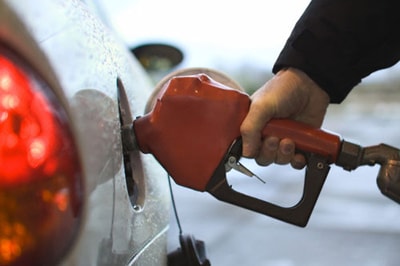The "identity" of petroleum enterprises violating temporary import and re-export regulations will be announced on September 5.
After September 5, the General Department of Customs will announce all relevant information of 14 key petroleum enterprises such as where and when the goods were imported, as well as violations and forms of collection (if any)...
In addition, the Ministry of Finance has recommended that the Government immediately stop temporary import and re-export of petroleum products by sea.

Gasoline and oil "hot" temporary import and re-export story (illustrative photo).
Speaking to the press, Mr. Nguyen Van Can, Deputy Director General of the General Department of Customs, said: Recently, a significant number of goods have been "temporarily imported" (including gasoline) but have not been "re-exported" but have waited for a favorable time to switch to domestic consumption.
Faced with this reality, the General Department of Customs has coordinated with the Ministry of Public Security to clarify the case, as well as the related subjects. Accordingly, after September 5, the General Department of Customs will announce the overall results of the inspection of these items. This agency will also announce all relevant information of 14 key petroleum enterprises such as where the goods were imported, when they were exported, as well as violations and forms of collection (if any)...
According to Deputy Minister of Finance Do Hoang Anh Tuan, the Ministry of Finance has recently organized inspections of temporarily imported and re-exported goods focusing on key border gates such as Hai Phong, Lang Son, and Quang Ninh, and has also organized anti-smuggling investigations in the past 3 months.
Regarding petroleum products, the Ministry of Finance inspected key petroleum import enterprises from May to early July 2012. The inspection focused on the implementation of State regulations on price registration and factors forming the selling price of State enterprises, checking tax compliance, and remuneration payment of agents and key units. Based on the inspection results, the Ministry will issue the 2012 inspection results and handle violations (if any) according to regulations, continue to propose solutions on mechanisms and policies to prevent the huge harms of temporary import and re-export to the economy...
According to data from the Ministry of Finance, the temporary import and re-export turnover has increased rapidly in recent times and has been unusual in recent times with a specific increase of 1.3 billion USD in 2006, 6.3 billion USD in 2011 and 3.8 billion USD in the first 6 months of 2012. Within 5 years, the figures in this field have increased nearly 5 times.
According to the Ministry of Finance, an unusual figure that poses risks to the economy is the difference between temporary imports and re-exports. For example, in 2007, businesses temporarily imported 1.755 billion USD but re-exported only 120 million; in 2010, temporary imports were 5 billion USD and re-exports were 4 billion USD.
Deputy Minister Do Hoang Anh Tuan said that through inspections in key areas, there were 1,010 shipments that had been temporarily imported for more than 180 days but had no records for re-export. The task of the inspection agency will be to clarify the nature of whether there was export or market destruction, because the imported quantity was there, but the output was not proportional.
This shows that a fairly high amount of infiltration into the domestic market. One of the important reasons for this situation, according to the Ministry of Finance, is the loophole in the policy mechanism. For example, in international goods that are banned or restricted, but we do not ban, especially toxic waste products, high-risk used electronic components, but we still allow temporary import and re-export.
According to international regulations, this activity must have a contract. However, Vietnam's current regulations only require a temporary import contract without a re-export contract, and the time limit of 180 days is also a loophole in the policy. Therefore, the Ministry of Finance has recommended that the Government immediately stop temporary import and re-export of petroleum products by sea. The Ministry of Finance proposes to clarify the principles within the current legal framework; in accordance with international principles and practices and to reasonably protect domestically produced goods.
According to (dantri.com.vn)-LT






